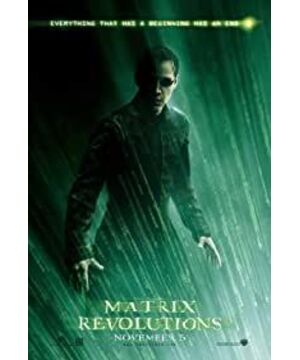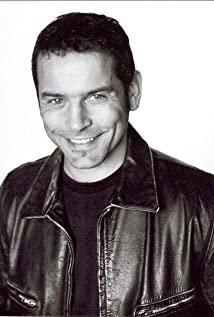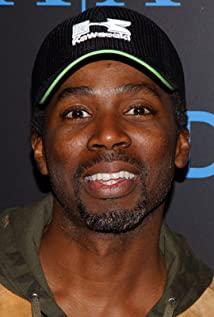In 2020, when this article is written, it has been 21 years since the first release of The Matrix. Looking back at this film, we will find that The Matrix is an anti-routine work, an outlier in the Hollywood sci-fi series. The convention of Hollywood movies is that commercial movies should be popular, with visual effects to capture people, to capture people with drama, to conquer the public, and to profit as the goal. Art movies are maverick, or fresh or obscure, and specialize in niche people who are aesthetically tired. For the purpose of winning prizes. However, the Matrix does not take the usual path. Under the appearance of commercial elements such as handsome men and beauties, explosive gun battles, humans against alien civilizations, its ending is actually an open ending that no one can tell why, and the magnificence of the blockbuster The niche aspects of sci-fi have a strange combination.
But the question is, what is the meaning of the Zen ending, the final product of this mashup?
This starts with the science fiction core of The Matrix.
Human core
There is a huge difference between genre literature and traditional literature. The core of the latter lies in the character, that is, literacy, while the core of the former is the element. For example, Holmes uses detective reasoning as an element. Even if his literature is lackluster, he cannot change the fact that it is an excellent detective novel. In the same way, the core of science fiction lies in the concept of science fiction. An excellent sci-fi work must have a personalized sci-fi core, and its sign is-if this core is replaced, the whole work will not be established. Just as the core of the robot series is the Three Laws, the core of the base is psychological history, the core of the science fiction of the wandering earth is the image of "traveling with the earth", science fiction is the literature of ideas (by Liu Cixin), can you have an excellent, A unique idea is an important indicator of its success.
What sci-fi ideas does the Matrix include?
The first is the setting of the virtual world. This kind of thought experiment originating from the brain in the tank is an absolute idealistic skepticism, that is, human beings cannot confirm whether they exist in the real world;
The second is the rise of intelligent machines and their survival and competition with human beings;
The third has the element of horror and curiosity about human beings being fed and reared;
The fourth is the interaction between humans and computer programs, and the battle of wits between anti-virus software and viruses.
But in my opinion, none of the above elements are the true personalized contribution of The Matrix. If only these elements need to be elaborated, there is no need for ambitious trilogy and many obscure and extremely unfriendly plots. Moreover, even in the contemporary era, these elements are only cutting-edge and fashionable, rather than unique and unique. We will find that the hypothesis of the brain in the tank has been used in "Thirteen-Layer Deduction". Intelligent machine rebellion is the theme of the Terminator series. Discussion with alien ethics is the strong point of the Ande series. The plot of human beings nurtured in a petri dish It has something in common with "Brave New World", the visualization of the computer ecology was also adopted by Digimon of the same year.
So many years later, what is the originality of The Matrix as a sci-fi work? What are its unique elements? In other words, after many years, how would we evaluate this old film when we think of it?
This is why I think it is not a science fiction in the traditional sense. It has many fashionable sci-fi elements, but those elements do not play a central role. It is unique in that it starts with the relationship between man and machine, discusses a brand new social form, and reflects on human nature in this way.
In other words, it is a dystopian soft science fiction work focusing on human nature.
Dystopia
The core of dystopian works is to describe the power relationship between the ruler and the people. If it is said that ordinary stories will tell the devil's all evils, then the dystopia will describe the devil's rule in detail and credibility-how to intimidate the people, do evil, and collect excessive taxes. However, in the Matrix, the ruler has changed from a human to a machine. This is also the innovation of the previous science fiction matrix. No longer like the Terminator series, the machine regards humans as enemies of pure competition, and regards them as objects of domination. From the perspective of a human being nurtured by a machine, this is an outright dystopian work, and the robot is the villain of the dystopia.
In the article From the War of Independence to Science Fiction Politics: Another Routine Performance of American Dystopia, I divided American dystopian villains into three categories:
The first is the independent villain. An independent man is a so-called dictator who acts dictatorially and with cruel methods, but as long as the culprit is eliminated, the problem can be solved, such as the head of a V-Vendetta team.
The second is the philosopher villain. It refers to an elite villain who has no intelligence and reason and loses humanity. It is characterized by sacrificing others under the pretext of always loving lofty goals, such as the polymath villain among the disagreements.
The third category is true social biological villains, that is, villains that exist as systems rather than personal images. Like bees and ants, they emphasize sacrificing individual freedom in order to achieve the best overall interests. Killing the culprit cannot change the system. For example, A huge system in a brave new world.
The machine civilization in The Matrix cannot be simply classified as any kind, it combines the characteristics of the two villains of the philosophical king and the true social creature. On the one hand, the machine is a perfect decision maker in the true sense, and a rational person in the economic sense, with absolute information and wireless computing capabilities, reflecting its philosophical king; on the other hand, relying on the matrix, the machine is extremely rigorous. The network that cannot be resisted controls everyone's life, satisfying their needs, but also ruthlessly squeezing the value of human beings, just like the dominance of the bee colony over the worker bees in real social creatures.
In other words, the machine civilization is a powerful ruler. The Big Brother in 1984 can control the thought of externalization. In the Brave New World, genetic factors, early experience and personality can be controlled, but the machine can manipulate the Matrix is the world itself. Moreover, compared to other utopias, where people can interact with the ruling class more or less, the Matrix world of machines does not give humans the opportunity to communicate at all. The only conflict of will between humans and machines comes from Zion, and it also exists under its acquiescence.
In summary, the machine is an unshakable ruler: rational and unbiased, but it also tirelessly satisfies human material and spiritual needs through Matrix. Objectively speaking, it is really difficult to find a better human ruler.
But why do humans still have to resist? Even if they have a rational ruler who can satisfy themselves, they can enjoy normal social life without worrying about food and clothing in the true sense.
This reason may be the same as that of all opponents in utopia.
Life needs autonomy and meaning.
Human Resistance
The pursuit of life is nothing more than happiness and joy, the desire for good food, the joy of bed, the warmth of family and friends reunion, and the satisfaction of career achievement. These pleasures are theoretically self-rewards provided by chemical substances secreted by our brain after external stimuli.
Let’s imagine a scenario where you are connected to a machine and continuously inject all kinds of pleasure-producing dopamine into your brain, enough to simulate the world’s most successful and happiest experience. You have no worries about food and clothing all your life, and all you have to do is to continue to be "happy". Will anyone accept this kind of life?
Few people accept such "happiness". This is the meaning of human nature, or the evolved psychological module: people have cognitive abilities and can distinguish between real happiness and sensory stimulation. Moreover, people always have the desire to control themselves and the surrounding environment, and are eager to interact with reality, transform the world, and transform themselves. This is the need for autonomy proposed by the psychologist Desi. This is why the rule of the machine is contrary to human nature. It deprives the self-need of control. Even from an absolute rational point of view, this demand may be redundant.
But from the perspective of movies, the irrational part of humans just makes up for the limitations of machine civilization. This can explain the second problem under mechanical utopia:
Why do machines keep humans?
Evolution and symbiosis
Rational machines benefit from irrational humans. I think this is the magic trick of The Matrix.
The essence of the computer is the product of the separation of the rational side of human beings. A philosophical king can make fair and unbiased decisions without being affected by emotions while maintaining wisdom. Reflected in the architect, he tried to eliminate random fluctuations and achieve mathematical harmony. His view is decisive: there is always one solution with the best value among countless solutions. This is also the reason why he made arbitrary judgments on the savior's decision-he believes that for mankind, the plan to return to Zion is the best.
But even if it is a theoretically infinitely rational mechanism, it still needs to use human irrational disturbances to achieve system upgrades. Just like the coexistence between predator and prey, anteaters will leave termites instead of killing them all, because anteaters need termites more than termites do to anteaters. This precisely describes the relationship between machines and humans. Anteaters need protein, and machines need the noise and disturbance caused by human nature, providing opportunities for system upgrades and enhancing the adaptability of machine civilization. The essence of this phenomenon is the discussion of human nature, especially the irrational aspect of human nature-emotion and will, whether they have any meaning in the calculation of pure rationality.
And the protagonist Neo is precisely the irrational spokesperson-he gave up the opportunity to return to Zion and restart the system, and chose to save his lover. This decision may lead to the complete destruction of mankind, which is irrational on the surface.
However, in contrast to the absolute rationality of classical economics, disciplines such as behavioral economics and evolutionary psychology put forward the viewpoints of bounded rationality and ecological rationality. Because absolute rationality always assumes that individuals make decisions with omniscience and omnipotence-for example, to buy a washing machine, consumers will know the price and performance of all washing machines in the world and compare them one by one. However, in reality, the information for decision-making cannot be collected completely, and the time for decision-making is very limited. It is impossible to become a washing machine expert in order to buy a washing machine. For this reason, what we need more is to use limited information and time to make the best possible choice, the so-called bounded rationality.
On the basis of bounded rationality, ecological rationality refers to things that seem irrational but are very beneficial in the actual environment. For example, humans’ natural fear of snakes (or the fear that is easily learned) seems to be irrational, but this kind of fear can make people avoid the source of danger-snakes as much as possible without social learning. His fangs caused the effect of crooked hitting. In the same way, human beings are more sensitive to loss than income, and it is considered to be a kind of ecological rationality. Because from the perspective of survival and adaptation, the extra daily gains are icing on the cake, and losses may endanger survival.
I personally think that the will and emotion embodied in Neo are just a kind of human ecological rationality, and they have become a bargaining chip for humans to coexist with machines. If architects, as the establishment of machine civilization, are the incarnation of the absolute rationality of computers and embody the basic operation and development of machine civilization, then prophets, as radicals, are more tolerant of human values and reflect the openness of this civilization. In this film, the birth of the savior gave birth to the unlimited proliferation of the virus Smith, and the Matrix, which was formatted and reborn when the savior and the virus destroyed together, embodies the self-iteration and evolution of machine civilization. To a certain extent, architects and prophets are exactly two sides of machine civilization, and they continue to promote the advancement of civilization in the struggle and cooperation with humans.
White space and defects
Now let us return to the original question: What is the significance of the final ending of The Matrix?
This ending is purely descriptive-we have witnessed the final battle and the result, the process and meaning of which are enclosed in a black box. We know that Neo, as the savior, solved the virus crisis for Matrix in exchange for peace, and in the ending, the architect representing the rightist of the machine and the prophet of the left reached a reconciliation and liberated mankind. But we cannot understand the specific motives of the parties. For example, what is the real intention of the architects to keep their promises, just because of the "quality" of honesty? Or do you think that the cost of restraining mankind exceeds the benefit, and that liberated human nature is more conducive to the development of one's own civilization? We don't know why only Neo can solve the virus. This particularity comes from the particularity given to him by the program or a certain human characteristic? As for the more distant future? The architect himself said that he did not understand how long the peace could last.
If we adhere to the premise that the creator is a god, we can continue to give a hundred self-consistent explanations from the reader's point of view. But if we go back to the perspective of the creator, we can go straight to the topic-the reason for adopting a vague and ambiguous open ending is more likely that the creator himself cannot give a better answer, and cannot symbiotically coexist with humans and machines in the future. Give a scientific explanation on the topic. This precisely embodies the process of sci-fi literature from its golden age to modernism and postmodernism.
The sci-fi in the golden age is very real, trying to follow scientific logic and advocating the beauty of theory. Take Wells, Verne, Asimov and others as examples. You can see the openness in literature, but it is difficult to see the unresolved core of science fiction. In other words, sci-fi writers in the golden age must dig holes at the technical level-as long as a technical suspense is set, a complete scientific solution will be reported, and the whimsical ideas of the plan itself are often the brilliance of the whole work. The point is, the so-called hard science fiction, the process from technology to technology, its scientific problems will inevitably be explained. Just like the beauty of structure advocated by traditional literature, all foreshadowings are recovered.
However, with the decline of sci-fi works, hard sci-fi in the golden age began to become scarce, social issues began to replace scientific issues and became the core of many sci-fi works, and more and more avant-garde techniques were also incorporated into it, resulting in drastic changes in its form. The enterprising spirit of technological optimism has also begun to be replaced by worries about science. Science fiction under the guidance of agnosticism is also gradually gaining ground—typically the world of Cthulhu created by Lovecraft, which emphasizes the fear of the unknown that humans face. Rather than exploring scientific issues, giving up on the world is often the subject of Luo style novels. If traditional science fiction values the solution of problems in the golden age, contemporary science fiction thinks that it is already very good to ask questions. Stealing the avant-garde stream of consciousness and non-linear narrative techniques can be the icing on the cake. Even science fiction itself will become the object of irony, just like the comical plot in the Hitchhiker's Guide to the universe's ultimate question of 42.
What the Matrix has done is to abandon the golden age of technological optimism’s obsession with scientific questions, and sublimate the issue of the coexistence of human and machine civilization into a religious ending, a metaphysical and avoidant answer. . For this ending, we must look at it from two perspectives.
First of all, from the perspective of traditional science fiction, this ending can be regarded as an evasion of technical problems. Through rhetoric and artistic techniques, the core scientific problem that should have been dealt with by science fiction writers "how to coexist between human and machine civilization" is thrown to readers, from the perspective of science fiction alone. , Is a failed approach. A truly perfect science fiction writer must have a high level of scientific literacy, able to catch every problem he raises, and show its scientific beauty. The Matrix’s interpretation of the problem obviously lacks the aesthetics of science—built on rigorous logic, real, can withstand scrutiny and deduction, and has the beauty of simplicity, nature, and clarity, such as psychological history or the three laws of robotics.
Secondly, from a narrative point of view, this ending is considered a success. Because it inherited the style of the trilogy in one continuous line, completed the arc of the characters, that is, basically successfully rounded up the story. And an ambiguous ending hovering in the air is also a very meaningful technique, an appropriate blank.
Third, from the perspective of Neo-Sci-Fi, its success lies in raising a valuable question. Not all sci-fi authors can be interpreters of problems, and not all scientific problems can be explained. Although the Matrix failed to give a detailed plan, it raised the issue of the coexistence of humans and machines.
Fourth, I personally appreciate the fact that there is no vulgar love and sentimentality in this film.
The view that love creates miracles may be valid in the context of human society, but it is ridiculous from the perspective of science fiction. You cannot think that love and miracles have a causal relationship just because love and miracles appear at the same time. Love is the cause of miracles. This is the most basic respect for science.
I have always felt that human beings have only evolved for hundreds of thousands of years, and it is foolish to think that nature is the master of all things, and that love, love, and love evolved for reproduction beyond the laws of the universe. Just as we believe that monogamous love transcends everything, according to this statement, female spiders will regard eating their mates as the supreme ethics and the ultimate law of the rotation of the universe, and male spiders will also regard how to escape after mating as surpassing everything. The most noble spiritual power; pandas think that compared to the estrus period of several hours a year, eating bamboo is the most meaningful and dignified thing for living beings. It can best reflect the value of living things in the universe and has universality beyond time and space. The steadfast belief in eating bamboo can even rewrite the universe; elephants think that the reason why creatures are creatures is that they have a long nose that symbolizes wisdom. No matter how long a creature without a trunk develops, it is a walking corpse without a soul and abandoning the noble elephant. The existence of sex. Our love worship is not necessarily more noble than the worship of panda eating bamboo and elephant nose, and because the essence of science fiction is to respect the laws of science and recognize the insignificance and limitation of the world of human experience.
The universe is too vast. In the face of unknowable changes, both humans and machines are just children. This kind of grand theme and empty inspiration is unique to the Matrix, and it is also impossible for those films that reduce the human-machine dispute to the problem of slave owners and slaves.
Concluding remarks
Finally, let us try to review the personality and contributions of The Matrix:
It contained many cutting-edge and fashionable sci-fi factors at the time, such as virtual networks and machine civilization, but its core sci-fi core lies in the dystopian world ruled by machines, and its contribution lies in the imagination and reflection on the symbiosis of man and machine, and its relative absolute rationality. , Thinking about the function of human nature. Compared with the hard science fiction that focuses on technology, it is a soft science fiction work that focuses on the humanistic society.
Its open-ended, modernist ending is not brilliant from the perspective of traditional science fiction. It shifts specific issues into metaphysical forms, fails to fully explain a solution to a scientific concept, and lacks the beauty of science; but from a broader narrative From a perspective, its ending also has a certain artistic value. More importantly, it did not overly praise human nature, and concluded that sensibility surpasses rationality and true love is invincible. The result of the richness of religious symbols is essentially that the author gave up the technical discussion of the solution of how humans and machines coexist, and left the readers with unlimited possibilities.
But I think that the open ending has its own tricks. From a sci-fi perspective, this is a flaw, but in the longer term it is an advantage.
Because the solutions to scientific problems always have limitations. Wells described the magical scenes of human landing on the moon, but these strange predictions quickly lost their charm, because humans actually landed on the moon, which made his works "outdated".
And if you only ask questions about the future without lightly defining it, you may also continue the vitality of this work.
In other words, being open to the unknown and allowing things you can't understand to exist is also a manifestation of the spirit of science.
Wouldn’t it be great to give up clumsy explanations and let them exist in the form of questions like heaven’s questions on themes that humans cannot make final conclusions. This may be the beauty of the blank space of soft sci-fi works in the new era compared to the simple and refined golden age of hard sci-fi.
First published at station B: https://www.bilibili.com/read/cv4531788
View more about The Matrix Revolutions reviews











